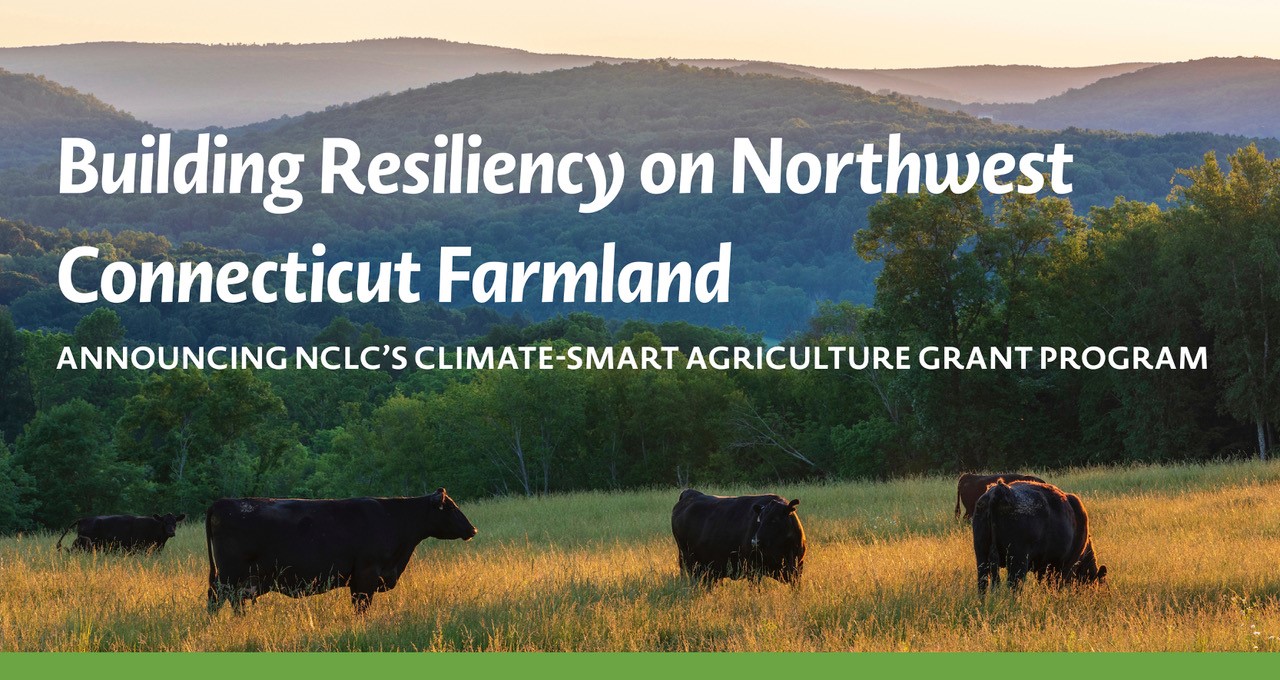
Climate-Smart Agricultural Assessment
What is a Climate-Smart Agricultural Assessment?
A climate-smart agricultural assessment identifies practices, strategies, and technologies to enhance agricultural productivity, resilience, and sustainability in response to changing weather patterns and climate. Through the Building Resiliency program, NCLC is partnering with Berkshire Agricultural Ventures (BAV) to provide climate-smart assessments to Northwest Connecticut’s farms at no cost. BAV will conduct each climate-smart agricultural assessment, which will include the following:
- Site Visit: BAV will conduct a one-to-three-day site visit that will review the farm operation’s challenges and discuss a range of management practices and strategies aimed at addressing and remedying areas of concern.
- Management Plan: BAV will provide a comprehensive, personalized climate risk management plan to implement the selected practices and strategies. Check out the Implementation Grant for opportunities to fund recommendations from this plan.
NCLC will accept applications on a rolling basis. For more information, view the tabs below or download a PDF version of the full Guidance here.
Please direct all questions to Shelley Rose, Agricultural Program Manager, at shelley@ctland.org, or call 860-927-1927.
Eligible applicants must operate working farmland or a farm business in NCLC’s service area, which includes all of Litchfield County and Brookfield, Newtown, and Sherman in Fairfield County. The assessment must occur on property owned, licensed, or leased by the applicant (for all property, the Landlord Consent Agreement authorizing the assessment must be submitted with the application).
All agricultural activities as defined by Conn. Gen. Stat. § 1-1(q) qualify, including but not limited to, the “cultivation of the soil, dairying, forestry, raising or harvesting any agricultural or horticultural commodity, including the raising, shearing, feeding, caring for, training and management of livestock, including horses, bees, the production of honey, poultry, fur-bearing animals and wildlife.”
The following individuals and entities are eligible for funding:
- Agricultural producers and agricultural cooperatives
- Land trusts
- Municipalities
- Non-profit organizations
Priority will be given to historically underserved producers, as defined by the NRCS. Click here to learn more about this classification.
This funding will exclusively cover the cost of one climate-smart agricultural assessment. To ensure the prompt completion of the assessment, all awardees must schedule their climate-smart assessment within six weeks of receiving notification of an award and signing a grant agreement with NCLC. After the assessment, awardees are responsible for completing a post-assessment survey.
Activity | Timeline |
|---|---|
Awardee executes agreement with NCLC | Within 1 month of award selection |
Awardee and NCLC schedule assessment | Within 2 weeks of agreement |
BAV completes climate-smart assessment and management plan | ~1 week total |
Awardee completes final survey | Within 2 weeks of completed management plan |
Complete the climate-smart agricultural assessment application form here. A PDF version is available here; applicants can email the PDF application to shelley@ctland.org.
Please reach out if you have any concerns about the technology or need clarification on the application questions. NCLC will not accept incomplete applications.
Attach the required documentation:
- Landlord Consent Agreement
- Maps, sketches, pictures, and other visual materials
Attach copies of all applicable documentation, including:
- Conservation easement
- Farm management plan
Applicants must show proof of eligibility and submit all required documentation to be considered for a climate-smart agricultural assessment. Strong applications will also demonstrate the following:
- Description of significant climate risks
- Desire to implement climate-smart management practices in the near future
- Ability to address climate risks through management practices that fall into the Building Resiliency Implementation Grant mitigation categories (soil health, nitrogen management, grazing and pasture, agroforestry, and energy use)
